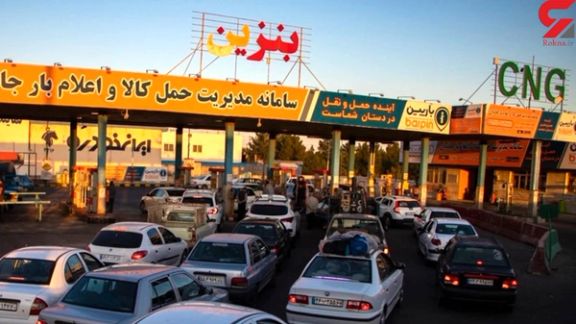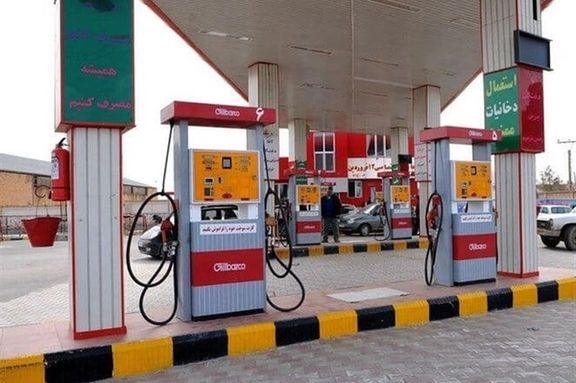BP Suspends Red Sea Shipments Due To Iran-backed Houthi Attacks

British Petroleum (BP) has suspended all oil and gas shipments through the Red Sea in response to an escalation of attacks on cargo ships by Iran-backed Houthi militants in Yemen.

British Petroleum (BP) has suspended all oil and gas shipments through the Red Sea in response to an escalation of attacks on cargo ships by Iran-backed Houthi militants in Yemen.
The announcement came on Monday, citing a "deteriorating security situation" in the region amid heightened tensions in the Middle East.
BP's decision marks the first instance of an oil company directly halting its own shipping operations. The move follows similar actions taken by five major shipping companies, which have ceased their vessels from traversing the waters connecting Asia and Africa, including the strategic Suez Canal that links Asia to Europe.
The shipping companies are implementing precautionary measures to safeguard their vessels following attacks by Houthis, who are protesting Israel's actions against Hamas in Gaza. The incidents include an attack on a US warship, and commercial vessels have been targeted off the coast of Yemen.
In a statement, BP emphasized its commitment to prioritizing the safety and security of its personnel and those working on its behalf. The company declared, "In light of the deteriorating security situation for shipping in the Red Sea, BP has decided to temporarily pause all transits through the Red Sea. We will keep this precautionary pause under ongoing review, subject to circumstances as they evolve in the region."
Separately, US Defense Secretary Lloyd Austin is expected to announce the launch of an expanded maritime protection force titled Operation Prosperity Guardian. The operation will involve Arab states and aims to counter the attacks that threaten the vital trading route of the Red Sea, impacting the transportation of various products into Europe.

The cyberattack that crippled gas stations across Iran on Monday was claimed by a hacking group that Iran has previously accused of having links to Israel.
The hacking group "Gonjeshk-e-Darande" or Predatory Sparrow announced the attack on X, claiming that they took out “a majority of the gas pumps throughout Iran.” Tehran cites a “software problem" as the cause behind the nationwide shutdown and says about 90 percent of the stations will be back on track by the end of the day.
Oil Minister Javad Owji earlier told Iranian state TV that services had been disrupted at about 70% of Iran's petrol stations and that outside interference was a possible cause. Reza Navar, spokesperson for Iran’s petrol stations association, said 60 percent were out.

The hacking group, whose nom de guerre is a wordplay in reaction to Iranian state-backed cyber-crime outfit Charming Kitten, said in statements in Persian and English that “the cyberattack comes in response to the aggression of the Islamic Republic and its proxies in the region.” They added, “We will impose cost for your provocations. This is just a taste of what we have in store.”
Addressing Iran’s Supreme Leader, the group said, “Khamenei, playing with fire has a price.”
The attack comes as Iran’s proxies like Hezbollah in Lebanon and the Houthis in Yemen have stepped up attacks against Israeli and US targets on the backdrop of the war in Gaza. Hamas declared war on Israel on October 7 after its militia invaded by air, land and sea, killing 1,200 mostly civilians and taking 240 captives. Iran supports Hamas but says it did not play any role in the Islamist militants' October 7 terror attack.
As measures “to limit potential damage to emergency services,” the hacking group said it “delivered warnings to emergency services across the country before the operation began, and ensured a portion of the gas stations across the country were left unharmed for the same reason, despite our access and capability to completely disrupt their operation.”
The group rose to prominence as a hacktivist two years ago for a similar cyberattack on fuel distribution centers across Iran on the eve of the second anniversary of the bloody suppression of the November 2019 protests. In a separate incident, they claimed responsibility for hacking the state railway company.
Last year, the group garnered attention for successfully penetrating the computer systems of major steel companies in Iran. They went on to share videos and images showcasing their hacking prowess and operation. At the time Israeli military correspondents, who are regularly briefed off-the-record by senior Israeli officials, hinted that Israel was behind that hack, according to the Times of Israel.
Iran has a history of cyber incidents, with one of the most notable being the Stuxnet computer virus, believed to have been developed by the United States and Israel. The Stuxnet virus, discovered in 2010, was used to attack an Iranian uranium enrichment facility, marking the first publicly known instance of a virus being utilized to sabotage industrial machinery.
In the past few days, two refineries in Iran burnt down. Less than a week after a devastating fire engulfed the Birjand oil refinery in east Iran, another refinery in Esfahan (Isfahan) faced a similar fate as it succumbed to flames on Saturday, December 16. In the December 10 incident, all 18 hydrocarbon tanks at the Birjand oil refinery in South Khorasan were consumed by flames.
Hadi Beiginezhad, a member of the Energy Committee in the parliament, criticized the authorities for not learning from the past similar attacks, saying that administrations do not pay attention to the infrastructure of the fuel distribution network.
"We don't know if this incident is technically a hack or if a hack has occurred at all. But what we do know is that the infrastructure of product distribution in the country is facing issues because the enemy has been able to take advantage of our negligence, both in terms of investment and infrastructure,” he said, noting that “the enemy has learned well which channels to strike... They have infiltrators and can easily carry out such sabotage operations."
Iran has witnessed a series of industrial accidents, including fires in oil facilities, petrochemical plants, and industrial centers in recent years. The incidents are often attributed to outdated technology, the use of substandard equipment, and the aging and deterioration of structures. While authorities have not provided comprehensive explanations for these incidents, they have attributed several high-profile sabotage attacks to Israel. However, Israel has not officially claimed responsibility for any of the incidents. Notably, numerous unexplained explosions and fires have occurred at various Iranian military, nuclear, and industrial facilities, including pipelines and refineries, since mid-2020. On January 28, a significant fire erupted at an Iranian military industrial factory, suspected to be the result of a drone strike in Esfahan.
Every now and then, the Islamic Republic announces that it has busted Israel-linked groups planning sabotage operations against its facilities. Israel has neither denied nor confirmed the allegations.
Some Iranians speculate on social media that the hacking of the gas stations can serve as an excuse for the government to increase gasoline prices that are the cheapest in the world after Venezuela. The Iranian government sells one liter of gas for 3 US cents, or 10 cents a gallon, as a long-existing subsidy for domestic consumers. However, the Oil Ministry announced that the disruption at fuel stations is in no way connected to a change in gasoline prices.

Italy is considering joining a Western naval coalition meant to protect ships in the Red Sea from attacks by the Iran-aligned Houthis of Yemen, a source told Reuters on Monday.
US National Security Advisor Jake Sullivan told reporters earlier this month that Washington was in talks with various nations over forming a maritime task force for the Red Sea but did not give further details.
The Italian source, who asked not to be named due to the sensitivity of the matter, said Rome had been asked to join the operation and a decision would be made by the end of this week.
Yemen's Houthis have waded into the Israel-Hamas conflict by attacking vessels in vital shipping lanes and firing drones and missiles at Israel more than 1,000 miles from their seat of power in the Yemeni capital of Sanaa.
The attacks began in mid-November after Iran’s ruler Ali Khamenei called for denying commerce to Israel because of its military operation in Gaza.
The US, British and French navies have already strengthened their presence in the Red Sea to protect vessels from the risk of seizure or attack by the Houthis.
The Houthis, which rule much of Yemen, say the attacks are a show of solidarity with Palestinians and has pledged to continue until Israel stops attacking Gaza.
The attacks by the Houthis pose a threat to the global economy as they target the flow of supplies between Asia and the West and are driving up the cost of shipping goods through the Red Sea.

A hacking group known for targeting government facilities in Iran has claimed responsibility for a nationwide attack disrupting gas stations on Monday.
The group provided technical details on their Telegram channel, warning Iranian leadership. Iranian state TV reported disruptions in services at numerous gas stations in the capital, with the cause yet to be determined.
Oil Minister Javad Owji earlier told Iranian state TV that services had been disrupted at about 70% of Iran's pumps and that outside interference was a possible cause.
The IRGC-affiliated Fars news agency linked the issue to a widespread software malfunction affecting gas stations. Reza Navar, spokesperson for Iran’s gas stations association, claimed experts are addressing the problem. However, he did not specify the extent of the disruption or the number of affected stations.
Navar said that there is no shortage of fuel supply and urged drivers to avoid gas stations until the issue is resolved.
The hacking group "Gonjeshk-e-Darande" or Predatory Sparrow gained notoriety two years ago for a cyber attack on fuel distribution centers across Iran on the eve of the second anniversary of the suppression of the November 2019 protests. In a separate incident, they claimed responsibility for hacking the railway company.
Last year, the group reported hacking into the computer systems of major steel companies in Iran and released videos and images of the hacking operation.
Iran has a history of cyber incidents, with one of the most notable being the Stuxnet computer virus, believed to have been developed by the United States and Israel. The Stuxnet virus, discovered in 2010, was used to attack an Iranian uranium enrichment facility, marking the first publicly known instance of a virus being utilized to sabotage industrial machinery.

Amid reports of a possible US strike on Iran-backed Houthis, IRGC’s commander-in-chief taunted Americans on Sunday, claiming that they’d leave the region soon.
“The US and Israel are reliving their bitter experiences,” said Maj. Gen. Hossein Salami. “Did they find victory in their occupation of Afghanistan? Were they able to stay in Iraq after its occupation? They are gradually packing up to leave this land.”
Iranian officials have been increasingly bullish in the past few weeks, banking, it seems, on the Biden administration’s apparent reluctance to confront the regime and its proxies in the Middle East.
Since mid-October, Iran-backed militias have launched 100 attacks on US bases (or interests) in Iraq and Syria, while Yemen's Houthis –with Iranian drones and missiles– have forced five shipping giants to halt their traffic in the Red Sea, a major artery for global commerce.
The US response has been limited and largely defensive. A few IRGC-affiliated positions in Iraq and Syria have been targeted and some drones have been shot down before hitting commercial vessels or US warships. But the option of striking the Houthis has been crossed out so far by the Biden administration.
Instead, the US is trying to build an expanded maritime force involving Arab and other states to protect commercial shipping at the Red Sea, according to the Guardian.
The joint task force is yet to be announced. Whatever its brief, it’s hard to imagine the Arab states footing the Houthi bill, especially since the group has repeatedly (and starkly) warned against any such move. Even if a coalition is formed, the burden of military operation would fall on the United States and the alliance would remain a defensive force.
“If Saudi Arabia or UAE are part of a US coalition to bomb Yemen then we will destroy their oil and gas fields, " a Houthi spokesman said to France 24 earlier this month.
Houthis say they would continue their operations as long as Israel continues its bombardment of Gaza, in which the US government is seen as complicit.
“Muslim nations hold an endless grudge against these criminals and US officials don’t dare visit Islamic lands,” General Salami said, just hours before US Secretary of Defense Lloyd Austin arrived in Bahrain for his multi-day tour of the Middle East.
Austin will also visit Qatar and Israel, reportedly to continue discussing a timetable for ending the war’s most intense phase and define milestones for the war with Hamas.
On Monday, the UN security council will vote on a new resolution calling for an “urgent and sustainable cessation of hostilities” in Gaza –only days after President Biden warned Israel that it risked losing international support due to its “indiscriminate” bombing and killing of Palestinians.
Thousands of civilians have been killed in the Israeli onslaught on Gaza, which has flattened large parts of the Strip and displaced 85 percent of the population, according to international organizations.
“We will stand with the beloved Palestine to the end,” Salami said Saturday, betraying the fact that the regime in Iran sees the current conflict as a battle in a much longer war, in which the main objective is not military gains but to isolate Israel and raise Hamas’ standing among Palestinians.
And to that end, Salami and his allies can see some success, if not victory.
“Israel will not win this war if its operations destroy the prospect of peaceful co-existence with Palestinians,” David Cameron and Annalena Baerbock, the foreign ministers of the UK and Germany, wrote in the UK's Sunday Times.
Lending their voice to growing calls for a “sustainable” cease-fire, they said “the sooner it comes, the better. The need is urgent.”
The Israeli government, however, seems to be determined to continue fighting to dismantle Hamas. An Israeli military spokesman said on Monday, “it is important for me to make clear, the IDF [Israel army] is determined to complete the task of dismantling Hamas.

One of Iran’s cyber espionage tactics to support Hamas is using Hebrew-speaking women to gather intelligence from Israeli soldiers, Iran International has learned.
According to our sources, several of these women are based in the religious city of Mashhad in northeastern Iran and use social media to seduce Israeli soldiers by sending nude images or provocative footage of themselves in an effort to gather military intelligence.
While the screen names and details of these women are presumably fake, the explicit photos and videos they shared with Israeli soldiers appear to be genuine. To entice their victims, these cyber operatives sent photos and videos of themselves wearing revealing clothing, heavy makeup, and, in some cases, nude photos.
According to Iran International's investigations, members of this IRGC-run catfishing cell use a wide range of fake profiles across various online platforms, managing at least 22 different avatars in some instances.

Two of these Mashhad-based 'swallows', identified as Samira Baghbani Torshizi and Haniyeh Ghaffarian, used their real pictures but posed as Israeli soldiers in their attempt to seduce and extract information from real Israeli soldiers. Torshizi, whose screen name was “Or Olga,” had claimed to be a Jewish immigrant residing in London. She had asked a soldier if she could see pictures of a vehicle he used in the army, wondering if “it is secret or classified.”
Ghaffarian had also tried to make an emotional bond with an Israeli soldier through sending photos and videos of herself.
Last month, the IDF announced that it foiled a network of Hamas supporters using fake social media profiles to extract information from the IDF forces, including information on the units that would be sent into the Gaza Strip and the timing of dispatches or operations underway as part of the Israel’s offensive against Iran-backed Islamist militia Hamas.
The accounts made contact with troops and “managed a kind of romantic relationship… through correspondence, voice recordings and video calls” in order to gather information for Hamas, the IDF said. The number of potential victims was estimated to be between hundreds and thousands of soldiers, including reservists. The IDF said the faux social media profiles had additional fake profiles posing as relatives and friends, in order to “strengthen their credibility.”
"In one case, the operative asked for the name of the soldier’s base and inquired, 'When are you entering Gaza?' In another instance, a profile named 'Shira Simon' claimed to be an intelligence officer to an officer in the Givati brigade, subsequently asking why he was on a base in the Golan Heights. The soldier replied that he was there for training."
Last year, Israel's internal security service Shin Bet also revealed a similar case, an Iranian operator working under the name of Sara Puppi, pretending to be a young Jewish girl with connections and business in Israel. In February, Twitter and Facebook suspended pages and profiles of an Iranian disinformation unit that was targeting nationalist and ultra-religious Jews in Israel.
Sexpionage is a historically documented phenomenon and was one of the methods of choice for the Soviet intelligence. In the Soviet Union, female agents tasked with employing such tactics were called 'swallows,' while their male counterparts were referred to as 'ravens.' The Islamic Republic has famously used swallows to honeytrap or blackmail its critical figures.
In one of the major recent cases, Iran’s intelligence apparatus used one of these so-called swallows to lure and consequently abduct Habib Asyud (also known as Habib Chaab) -- an Iranian-Arab leading separatist – in Istanbul. He was smuggled to Tehran in November 2020 and was hanged earlier this year.
Iran supports Hamas but says it did not play any role in the Islamist militants' October 7 terror attack that triggered the current crisis. Iran also backs the Hezbollah, a Lebanese militant group that has deep ties with Hamas and Islamic Jihad, another Palestinian faction in Gaza that is also backed by Iran.